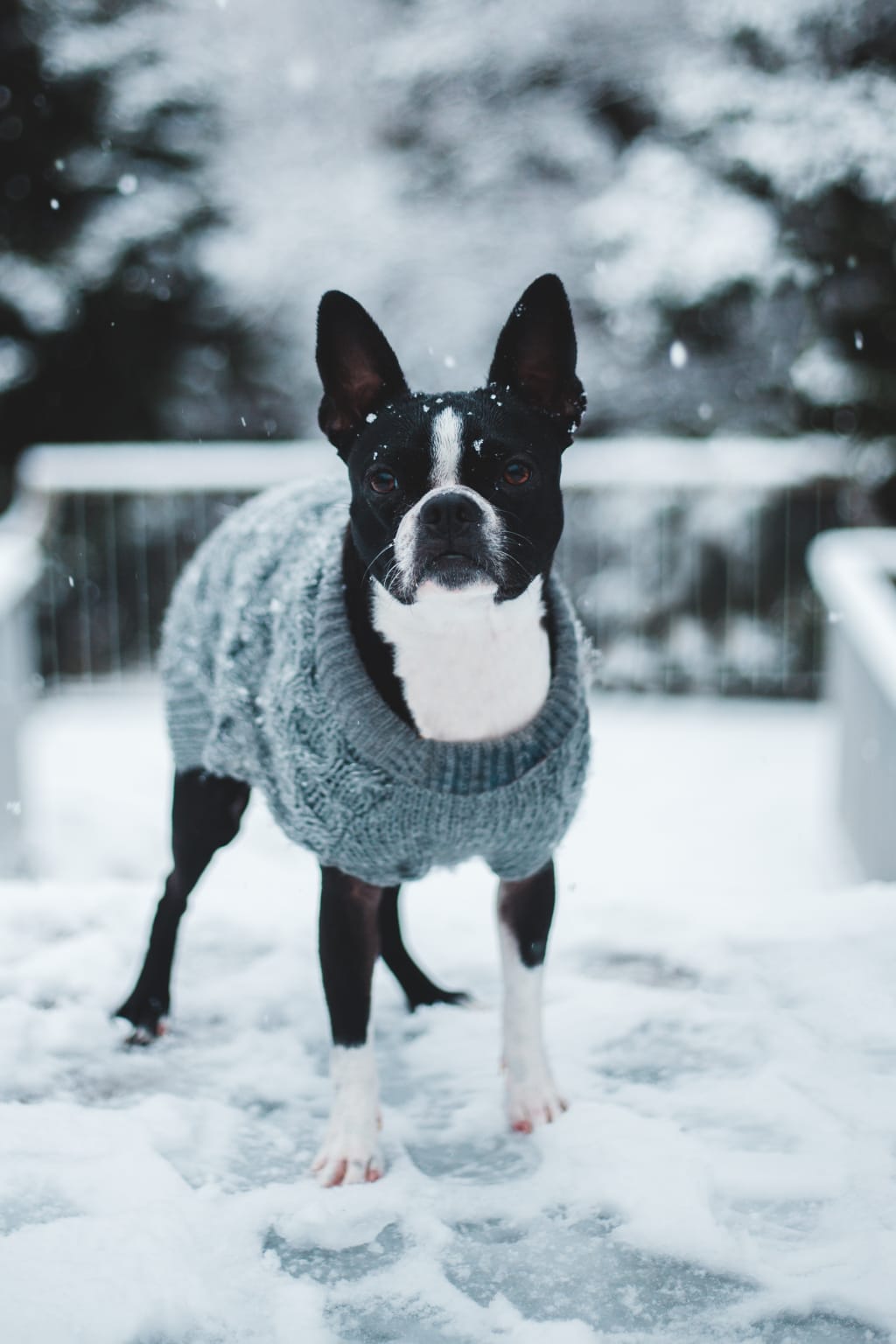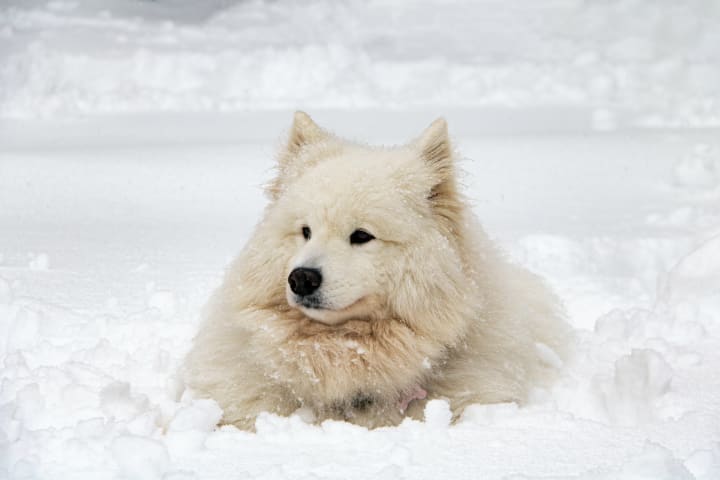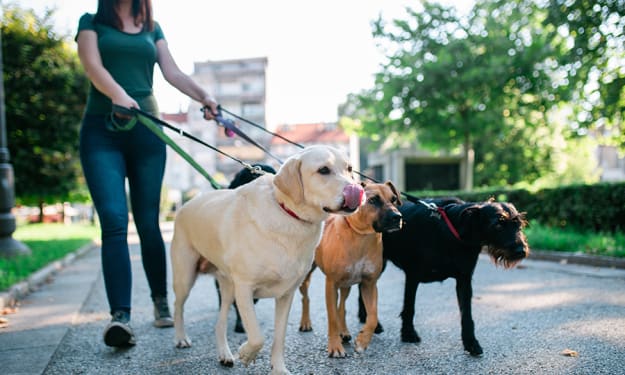how to take care of your dog in winter season
Here are a few tips for taking care of your dog in the winter season

Here are a few tips for taking care of your dog in the winter season
Keep your dog warm: Make sure your dog has a warm, insulated place to sleep and a waterproof coat to wear when going outside.
Provide adequate food and water: Your dog will burn more calories to stay warm in the colder weather, so make sure to provide them with enough food and fresh water.
Keep your dog active: Exercise is important for your dog's physical and mental well-being, but be mindful of the cold and icy conditions.
Watch for signs of hypothermia and frostbite: Signs of hypothermia include shivering, shallow breathing, and lethargy. Signs of frostbite include gray, white, or blue skin and numbness.
Groom your dog regularly: Brush and groom your dog regularly to remove any matting and tangles in their fur, which can trap moisture and lead to skin irritations.
Be mindful of salt and chemicals: During the winter, many sidewalks and roads are treated with salt and chemicals to melt ice. These can be harmful to your dog's paws, so make sure to wipe them off after walks.
Keep an eye on your dog's paws: In the winter, your dog's paws can become dry and cracked from the cold, so make sure to apply a paw balm to protect them. Also, be mindful of the salt and chemicals used to melt ice on sidewalks and roads, as they can be harmful to your dog's paws.
Provide warm bedding: Make sure your dog has a warm and comfortable bedding to sleep on. This will help keep them warm and cozy.
Watch out for antifreeze: Antifreeze is a common winter hazard for dogs. It is highly toxic and has a sweet taste, so dogs may be attracted to it. Be sure to clean up any spills and keep antifreeze out of reach.
Keep an eye on your dog's weight: As mentioned earlier, your dog may burn more calories in the cold weather, so make sure to adjust their food intake accordingly to avoid weight gain.
Lastly, keep an eye on your dog's behavior: Changes in behavior or routine can be signs of pain, discomfort, or other health issues. If you notice any changes, it's best to consult your vet.
Be mindful of the temperature: When taking your dog outside, be mindful of the temperature and wind chill. Dogs with short hair or thin coats may not be able to tolerate the cold as well as those with thick fur. It's best to limit their time outside in extreme cold weather.
Provide warm water: Make sure your dog has access to warm water, especially when it's cold outside. Cold water can cause your dog to become dehydrated or disinclined to drink.

Keep an eye on senior dogs and puppies: Senior dogs and puppies may have a harder time regulating their body temperature, so they may need extra care and attention in the winter.
Provide plenty of mental stimulation: Cold weather and shorter days can lead to cabin fever, so it's important to provide your dog with plenty of mental stimulation, such as interactive toys, puzzles, or training exercises to keep them mentally stimulated.
Regular Vet check-up: It is always a good idea to have a regular vet check-up, especially during winter seasons. This will help ensure that your dog is healthy and any potential health issues can be caught early.
Keep your dog's nails trimmed: Long nails can cause discomfort and make it difficult for your dog to walk on icy or snowy surfaces. Make sure to keep your dog's nails trimmed to prevent any issues.
Watch out for ice: Ice can be dangerous for dogs, as it can be slippery and cause injuries. Keep an eye on your dog and supervise them when they're near bodies of water or other icy surfaces.
Provide a cozy and warm shelter: If your dog is spending a lot of time outside, make sure that their shelter is cozy, warm, and protected from the elements. It should have a sturdy roof, insulation, and a raised floor to keep them off the cold ground.
Be prepared for emergencies: Make sure you have emergency supplies and contact information for your vet, in case something unexpected happens. Keep a winter emergency kit for your dog that includes a blanket, extra food, water, and a first-aid kit.
Overall, it's important to keep your dog warm, well-fed, and active during the winter, while also being mindful of the potential hazards and risks associated with the season. Regular check-ups with the vet and observing your dog's behavior are crucial in ensuring that your dog stays healthy and happy during the winter.
About the Creator
Shaan Pet wellness
Pet wellness is the overall health and well-being of our furry companions. It includes providing them with proper nutrition, regular veterinary care, exercise, and mental stimulation.






Comments
There are no comments for this story
Be the first to respond and start the conversation.